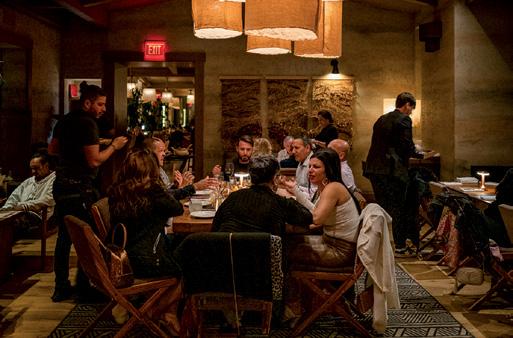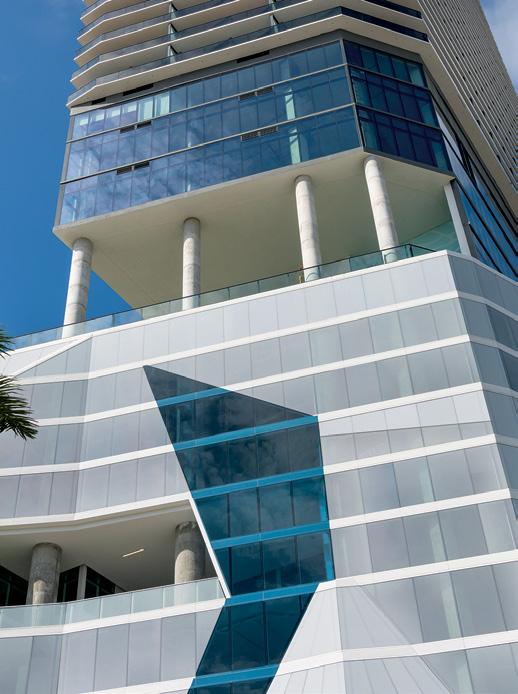
2 minute read
New Records for Foreign Investments and Exports
Export of Goods from the Dominican Republic
(US$ million)
Source: ProDominicana market data, Central Bank data
Also expanding is Miami-based Karisma Hotels & Resorts, which operates three of its 23 properties worldwide in the Dominican Republic. Karisma owns Nickelodeon Hotels & Resorts Punta Cana, a luxury, all-inclusive complex for families, with 460 suites and a villa called the Pineapple, inspired by SpongeBob Square Pants’ home. It also runs Margaritaville Island Reserve Cap Cana’s two luxury, all-inclusives: Hammock for families and Waves for adults-only, together offering 500-plus rooms and 40 villas.
Karisma plans two more Dominican hotels, though details have not been released. “The biggest surprise of doing business in the Dominican Republic has been how friendly the government is to the hospitality industry. They have some fantastic programs that encourage investment and fuel the industry,” says Frank Maduro, president of Miami-based Premier Worldwide Marketing, the sales and marketing representative for Karisma. He suggests investors “lean on” government incentives to grow.
All those hotel rooms need air lift for guests, and that’s where the private Punta Cana International Airport comes in. About 15 years ago amid global recession, Grupo Puntacana began suggesting that passenger airlines add cargo to boost their revenues, taking out tropical fruits and flowers and bringing in needed hotel supplies. “It started because we wanted to make sure the airlines didn’t take away routes” in tough times for tourism, says CFO Rainieri.
Now, the group is taking that idea further by partnering with DP World to launch Punta Cana Free Trade Zone and Logistics
Hub at the airport, an area that will provide space for warehouses, manufacturing, call centers, tech ventures, and even a maintenance operation for commercial jets. The plan is to handle not just cargo made in, or bound for, the Dominican Republic, but also to offer the airport’s connectivity to regional neighbors, likely flying out fruit and flowers from Colombia and Ecuador to the U.S. or Europe.
“We want to make this hub the most efficient, with the highest standards,” teaming with seaports for those shippers who want to combine more expensive, faster air links with slower, more affordable sea routes, says Rainieri. “We’re building on our business foundation step by step.”
Grupo Puntacana is stoking demand for freight too. It just bought land in Miches for two major resorts and plans several, ultra-luxury boutique hotels on its original property. For local workers, it’s building a community with 20,000 units of affordable housing “that we don’t make a penny on, in a social-responsibility project to ensure the area is sustainable and improves quality of life,” says Rainieri.
AGRICULTURE: EXPORTING NON-TRADITIONAL FRUITS
At airports and seaports nationwide, perishables are central to logistics. Long before tourism took off, agriculture sustained the economy, especially its “dessert” exports of sugar, coffee, tobacco, and cacao. The country remains one of the world’s top exporters of premium cigars ($1 billion-plus yearly), but agriculture has shifted










